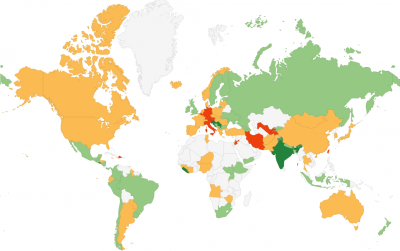Difference between revisions of "Information Freedom"
| Line 1: | Line 1: | ||
'''Information Freedom''' (also referred to as ''Freedom of Information'') is a term that defines an individual’s right to access information and is largely thought of as an extension of ones right to privacy, speech and expression. Information freedom is often closely connected with digital technology and the Internet. The United States, United Nations and international community at large all consider freedom of information a basic human right. | '''Information Freedom''' (also referred to as ''Freedom of Information'') is a term that defines an individual’s right to access information and is largely thought of as an extension of ones right to privacy, speech and expression. Information freedom is often closely connected with digital technology and the Internet. The United States, United Nations and international community at large all consider freedom of information a basic human right. | ||
| − | [[File:GlobalIFMap.png|400px|thumb|right|Global Freedom of Information Laws by Country. Scale is green to red.]] | + | [[File:GlobalIFMap.png|400px|thumb|right|Global Freedom of Information Laws by Country. (Scale is green to red, green with high legal protections and red with low.)]] |
==Information Freedom in the United States== | ==Information Freedom in the United States== | ||
Revision as of 02:18, 18 February 2016
Information Freedom (also referred to as Freedom of Information) is a term that defines an individual’s right to access information and is largely thought of as an extension of ones right to privacy, speech and expression. Information freedom is often closely connected with digital technology and the Internet. The United States, United Nations and international community at large all consider freedom of information a basic human right.
Contents
Information Freedom in the United States
Freedom of Information Act
Private Sector
Global Information Freedom
Global Network Initiative
The Global Network Initiative (GNI) was launched in 2008 to protect and advance freedom of expression and privacy in the digital world. The GNI is comprised of a collection of multinational technology companies, human rights and advocacy groups, and universities. The extensive list of high-profile organizations includes Facebook, Google, Yahoo!, Microsoft, LinkedIn, Harvard University, University of California, Berkley, and Human Rights Watch.
